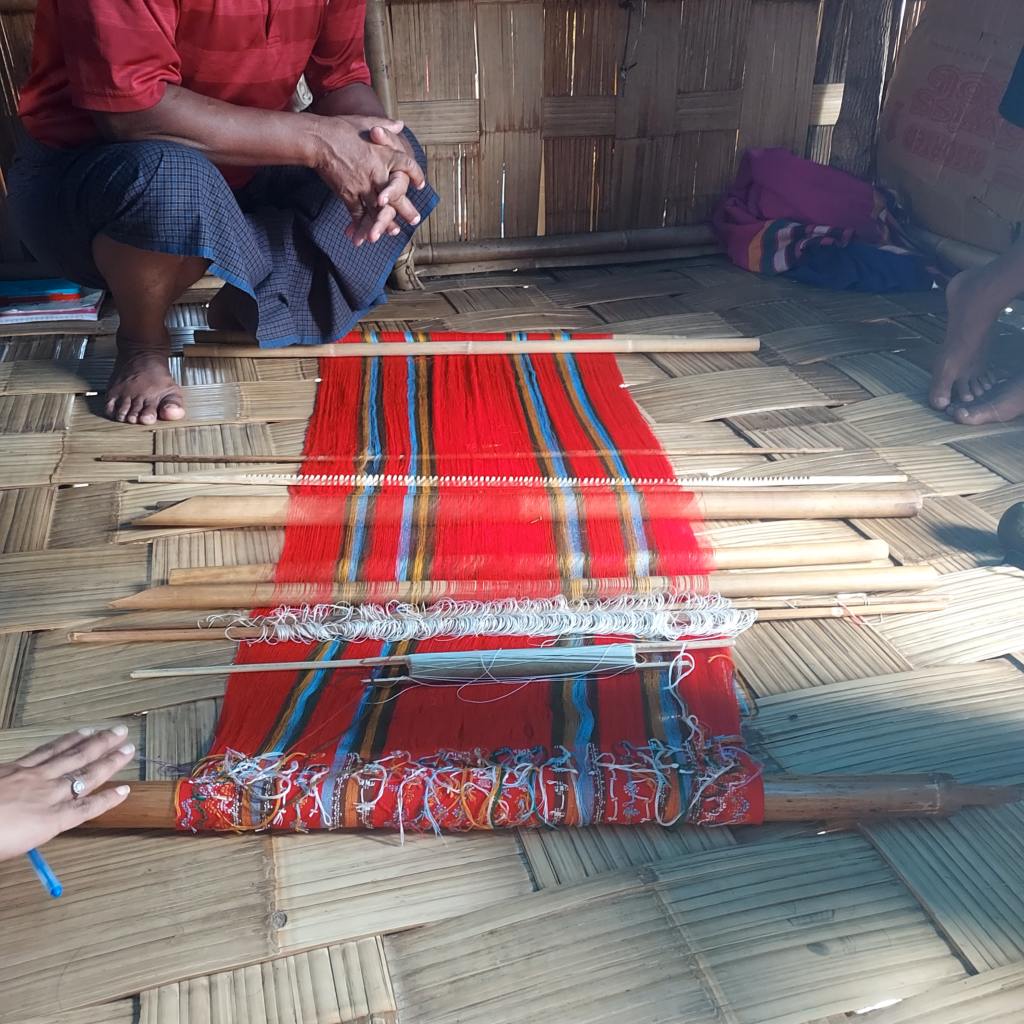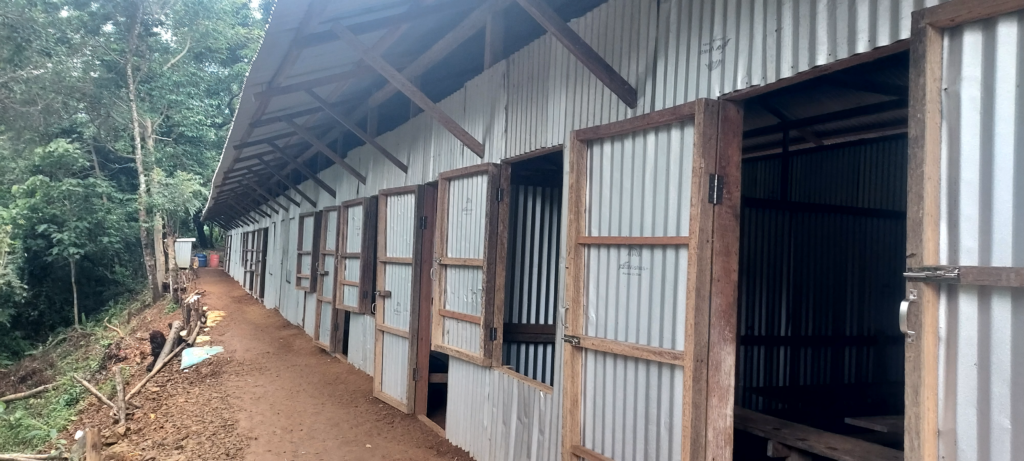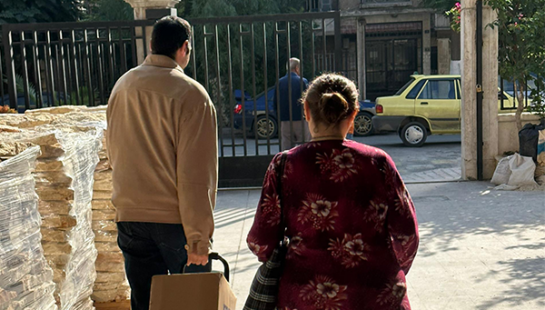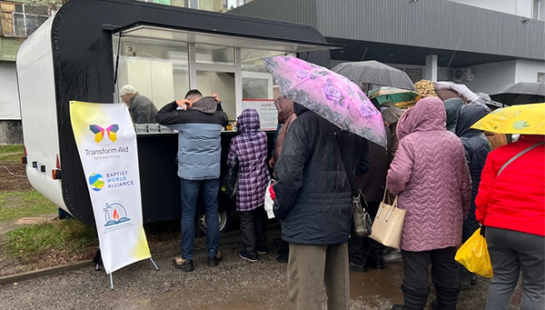Many people are now living in displacement camps where they’re struggling to access food, earn an income, stay safe from diseases, and continue their children’s education.
Our Partner is providing ongoing assistance to displaced families from Myanmar, thanks to the generosity of supporters who have given to Baptist World Aid’s Myanmar Humanitarian Response Appeal.
Here are some of the ways that supporters like you are helping people survive this conflict.
Meeting immediate Needs
Living far from home in displacement camps, away from usual income sources, makes it difficult for people to meet their families’ needs. Many men are working any labour job they can find to support their families, while women are more likely to stay at home due to the unfamiliar territory of where they live.
To build up people’s resilience, our Partner is providing:
- Food for families, including staples such as rice and dhal
- Mosquito nets to help prevent malaria
- Water storage tanks so families can store water rather than walking back and forth from water sources with buckets
- Chickens and chicken feed so families can gain nutrition from the eggs and generate an income (in one camp, those who received baby chickens were able to sell 80 per cent of them as adults)
- Weaving looms to help women supplement their family’s income with piecework (pictured below)
- Stationery and books for children to support their education
- Necessities such as sanitary products for women.

According to a Baptist World Aid staff member who recently visited one of the camps, one of the positive aspects of the camp community is the sense of cooperation between people. ‘Those who are elderly and unable to go out for work receive support from the community,’ she said. ‘They also have a good relationship with the host community in that area’.
Keeping Children At School
For displaced families, one of the top priorities is making sure children can continue their education. School has been disrupted over the past three years due to the ongoing conflict in Myanmar. This sets children back in their learning, impacts their mental health, and puts them at higher risk of poverty in the future.
But with your support, our Partner is working alongside families as they educate their children, even in the most difficult environments.
One displaced community has 119 school-aged children, ranging from first grade to year 12. The community was fortunate to have a school principal and several teachers in its midst, so people worked together to set up a makeshift structure out of tin sheets and bamboo (pictured below), which the children could use as a school.

‘Despite so many setbacks,’ one Partner staff member said, ‘the ‘school’ provides a safe space for children to gather and interact with each other.’
‘The teachers have been able to access the Burmese curriculum and textbooks, and so the children are able to follow the standardised system in the hope of being able to integrate back, when they return home,’ they said.
The school has faced many challenges though, including erratic attendance, a lack of stationery, and children experiencing hunger and listlessness while in class. To help them overcome these challenges, our Partner helped equip 12 classrooms with partitions and stationery, and provide the children with a regular midday meal.
These practical supports will help build the children’s mental and physical resilience, so they can participate in the day’s activities, attend regularly, and learn well—even during so much uncertainty.
The Situation Now
On 3 May, Myanmar passed a heartbreaking milestone with more than three million of its people now internally displaced within the country. The UN estimates that one third of those who are displaced are children.
Families far from home face a daily struggle to access food, earn a livelihood, care for their health, and continue their children’s education. By providing support with these everyday necessities, we can help people survive this current crisis, and work towards a better future.
‘We don’t know when we can go back home,’ one community member said. ‘When we stay at this camp, we can get healthy, we can help.’
What Can You Do?
Baptist World Aid is proud to be collaborating with Baptist Mission Australia and every Baptist state association across the country to encourage Christians to pray, give, or act for Myanmar through the Stand with Myanmar Campaign.
Act–we know advocacy works. Please join us in calling on the Australian Government to act on behalf of our brothers and sisters affected by ongoing crises in Myanmar. You can sign the petition here.
Give–Your generous financial support will make a tangible difference for vulnerable people in Myanmar and border areas. You can donate here.
‘Please pray for Myanmar, pray for democracy. Only God can do everything. The word of God says, “trust in me, I can do all things.”’
Please join us as we pray for the people of Myanmar:
• That those displaced from home would be able to meet their needs
• For children to be able to continue their education and learn well
• That God would give our Partners strength and wisdom as they serve displaced communities
• That God’s love would be expressed as people in communities cooperate and help each other meet their needs
• For justice, stability, and an end to violent conflict across the country.
• For Julie Bishop–recently appointed UN special envoy to Myanmar–as she does her best to bring various stakeholders into conversation with one another in the interest of moving towards peace.



